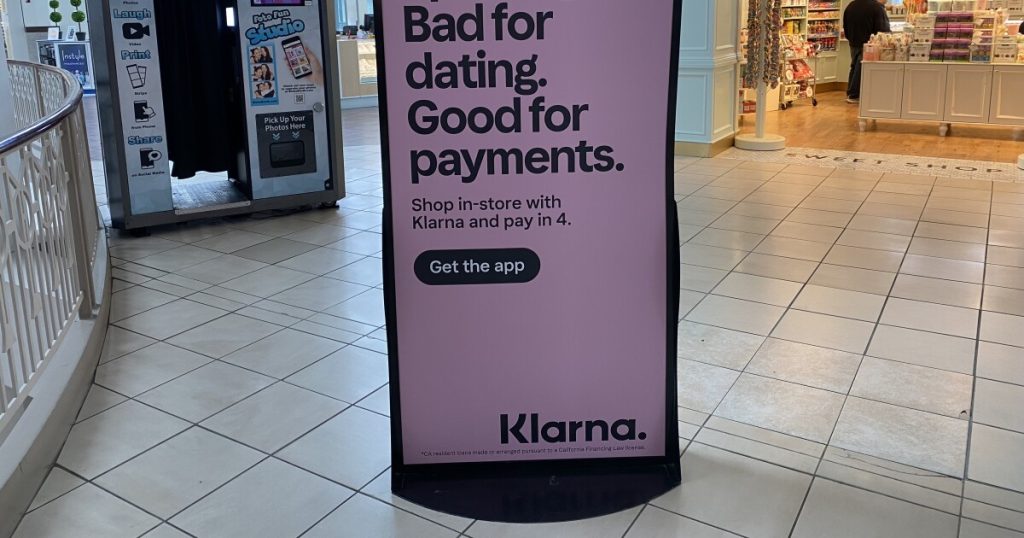Buy now/pay later lending is a scale game, where it’s much easier for lenders to court merchant networks rather than woo individual retailers. That makes Klarna’s deal to provide BNPL to JPMorgan Chase’s merchant network a major score ahead of the Swedish firm’s initial public offering in the U.S.
The bank will offer Klarna’s installment options at the point of sale for more than 900,000 businesses, including interest-free BNPL and other financial options that will be available on the J.P. Morgan Payments Commerce Solutions Platform. The integration is scheduled to launch later this year.The collaboration enables JPMorgan to broaden credit choices for merchants as more banks offer the product. Klarna gains an opportunity to quickly add merchants and name recognition in the U.S. market, where it faces stiff competition from other banks and payment firms such as Block and PayPal.
“Inking a deal with the world’s largest payment processor is going to provide Klarna with unmatched marketing reach and connectivity to the largest population of merchants,” said Don Apgar, director of merchant payments for Javelin Strategy & Research. “The leading enterprise retail brands have widely adopted BNPL, and Klarna has done a good job of capturing a sizable slice of that market.”
JPMorgan is one of the largest merchant acquirers in the U.S., based on the number of transactions. The bank processed 38 billion payments in 2023, the latest full-year numbers available, according to Statista. That was about 70,000 transactions behind Fiserv, the largest acquirer with just over 38 billion. Other large merchant acquirers in the U.S. include FIS with 33 billion payments, Global Payments with 12 billion and Wells Fargo, the second largest bank merchant acquirer with 9.7 billion payments. JPMorgan was the largest merchant acquirer by volume, with $1.8 trillion in payments, ahead of Fiserv with $1.6 trillion.
The partnership is aimed at expanding JPMorgan’s options for its merchant services clients and is not aimed at consumers. JPMorgan in October 2024 imposed a ban on using Chase credit cards to pay for installment loans from non-Chase apps, such as Klarna, Affirm, Afterpay and others. Chase allows credit card customers to split individual payments on their card statements into three, six or 12 monthly installments from within the Chase banking app, for a fee. The Klarna partnership does not change JPMorgan’s policy regarding bank-issued credit cards, a JPMorgan spokesperson said in an email.
Klarna in November filed a confidential IPO registration with the Securities and Exchange Commission. Klarna in late October held an estimated valuation of $14.6 billion following an additional investment from one of its shareholders, Chrysalis Investors. Klarna did not answer questions about its planned IPO or its JPMorgan partnership. Klarna’s pending listing has drawn attention from the financial services community, which is looking for signs that a multi-year fintech slump is easing. The IPO reportedly is due to launch in April in New York, according to The Financial Times.
“Klarna’s partnership with JP Morgan Payments has the potential to move the needle for [Klarna’s] business. It’s no coincidence that the deal was announced while Klarna is on an IPO roadshow,” said Glen Anderson, CEO and Co-Founder of Rainmaker Securities, in an email. Klarna’s other distribution partnerships include Stripe, Adyen and Worldpay, among others, Klarna last year sold its checkout unit as part of a pivot to focus more on partnerships. The Swedish firm has also invested heavily in new forms of artificial intelligence to reduce overhead costs, another factor it can pitch to IPO investors.
In an effort to improve its financial services game, Klarna in early 2024 offered a new version of its Visa debit card that enables consumers to pay in installments with interest, replacing a $4.99-per-month debit card that supported Klarna’s traditional installment lending. The updated Klarna Visa card was part of an effort to compete with other BNPL lenders that offer similar cards, such as Affirm and Afterpay.
The nonbank BNPL market is under pressure and is looking to expand revenue streams with more banks entering the market and regulators investigating BNPL fintechs over concerns about the financial health of borrowers. The fact that the JPMorgan/Klarna partnership is scheduled to launch “later this year” would also reinforce the idea of a deeply integrated reseller relationship, not a simple referral deal, according to Apgar. Klarna is creating the foundation for their BNPL program to scale without the expense of having to sign and service every merchant individually, Apgar said.
“Conversely, bundling the Klarna program and offering BNPL to their merchants along with merchant processing is a great competitive advantage for JPM, and also likely represents a revenue opportunity for JPM as well.”

